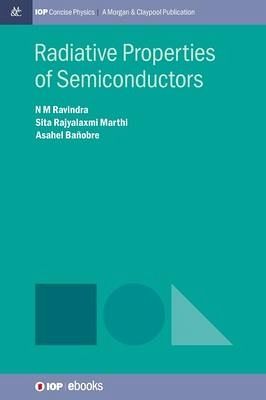
Radiative Properties of Semiconductors
Versandkostenfrei!
Versandfertig in über 4 Wochen
113,99 €
inkl. MwSt.

PAYBACK Punkte
57 °P sammeln!
Optical properties, particularly in the infrared range of wavelengths, continue to be of enormous interest to both material scientists and device engineers. The need for the development of standards for data of optical properties in the infrared range of wavelengths is very timely considering the on-going transition of nano-technology from fundamental R&D to manufacturing. Radiative properties play a critical role in the processing, process control and manufacturing of semiconductor materials, devices, circuits and systems. The design and implementation of real-time process control methods in ...
Optical properties, particularly in the infrared range of wavelengths, continue to be of enormous interest to both material scientists and device engineers. The need for the development of standards for data of optical properties in the infrared range of wavelengths is very timely considering the on-going transition of nano-technology from fundamental R&D to manufacturing. Radiative properties play a critical role in the processing, process control and manufacturing of semiconductor materials, devices, circuits and systems. The design and implementation of real-time process control methods in manufacturing requires the knowledge of the radiative properties of materials. Sensors and imagers operate on the basis of the radiative properties of materials. This book reviews the optical properties of various semiconductors in the infrared range of wavelengths. Theoretical and experimental studies of the radiative properties of semiconductors are presented. Previous studies, potential applications and future developments are outlined. In Chapter 1, an introduction to the radiative properties is presented. Examples of instrumentation for measurements of the radiative properties is described in Chapter 2. In Chapters 3-11, case studies of the radiative properties of several semiconductors are elucidated. The modeling and applications of these properties are explained in Chapters 12 and 13, respectively. In Chapter 14, examples of the global infrastructure for these measurements are illustrated.


